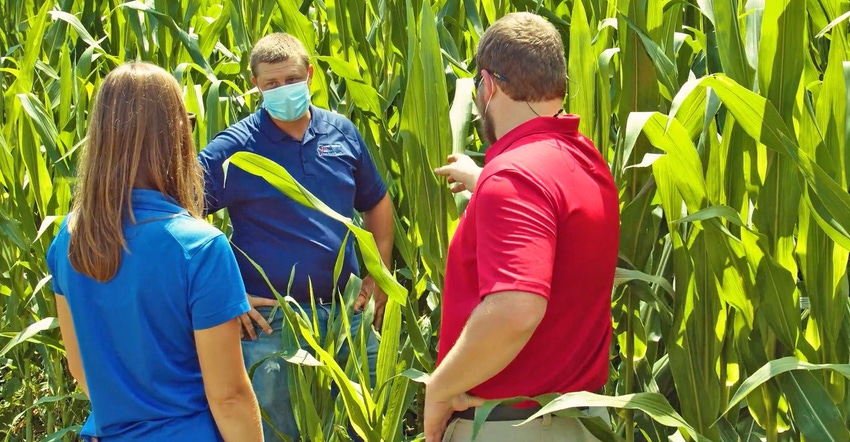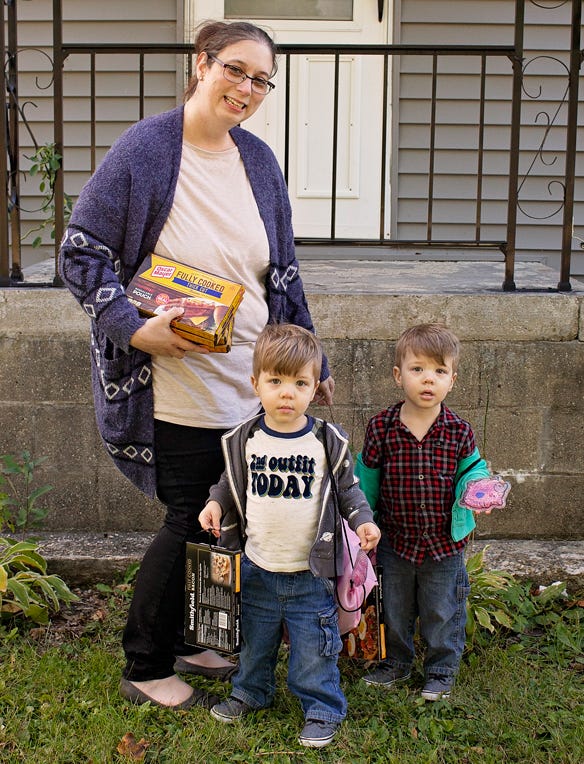October 22, 2020

Illinois Farm Bureau hosts virtual field days
Certified crop advisers and farmers can tune into nine virtual nutrient stewardship field days at ilfb.org/FieldDays. Each video was filmed in a different Illinois county. Each project is part of the Illinois Farm Bureau nutrient stewardship grant program or the woodchip bioreactor partnership.
Warren-Henderson County. Host farmer Jacob Baker presents results of his first year studying four different nitrogen sources at four different application rates.
LaSalle County. Host farmers David and Jim Isermann share research on their farm using struvite as an alternative to traditional phosphorus field applications.
Clinton County. Host farmers Paul Meyer and Mark Litteken discuss research on their farms using manure to avoid commercial fertilizer applications and cover crops to reduce nutrient runoff.
Shelby County. Host farmer Stephen Anderson gives insights into his ongoing research project studying drainage water management and its potential to reduce nutrient runoff.
St. Clair County Host farmer Paul Beisiegel and Southern Illinois University-Carbondale researcher Karl Williard discuss the use of flue gas desulfurization gypsum to potentially improve water quality, soil structure and crop production.
Wayne County. Host farmer Fred Blessing joins researchers and agronomists to discuss a nutrient loss inhibitor demonstration plot on his farm. The group also discusses additional research to address fallow ground soil health concerns at the site.
Jo Daviess County. Host farmer Greg Thoren discusses on-farm soil health research using a rainfall simulator and cover crop strip trials.
McHenry County. John Henning, president of the McHenry County Conservation District board of trustees, discusses a woodchip bioreactor on conservation district property.
Henry County. A partnership between Illinois Farm Bureau and several other organizations breaks ground on its third bioreactor, the latest step in a plan to build five throughout the state.
Draining for a cure
Springfield Plastics is raising money for the Simmons Cancer Institute at Southern Illinois University School of Medicine in Springfield, Ill. Springfield Plastics began this annual fundraiser in 2014 and has raised over $324,000 since then. The 2019 Drain for the Cure campaign raised over $73,000, and goals are even higher for 2020.
“Everyone has been touched by cancer in one way or another,” says Jennifer Furkin, vice president of Springfield Plastics Inc. “By donating to Drain for the Cure, you can help make a difference in someone’s life and contribute to finding the cure.”
During the month of October, Springfield Plastics pledges to match donations dollar for dollar up to $30,000. To donate, visit forwardfunder.siumed.edu/amb/DFTC. Donations will also be accepted by mail or drop-off at 7300 W. State Route 104, Auburn, Ill. Make checks out to SIU Foundation.
Dairy Margin Coverage signup open
USDA began accepting applications for the 2021 Dairy Margin Coverage program, or DMC, in mid-October. Sign-up runs through Dec. 11. DMC offers protection to dairy producers when the difference between the all-milk price and the average feed price falls below a certain dollar amount selected by the producer. DMC payments were triggered for seven months in 2019 and three months so far in 2020. More than 23,000 operations enrolled in DMC in 2019, and more than 13,000 in 2020.
To determine the appropriate level of coverage for a specific dairy operation, producers can use the recently updated online DMC Decision Tool. The tool is designed to assist producers with calculating total premium costs and administrative fees associated with DMC.
For more information, visit the DMC webpage, or contact your local USDA Service Center. To locate your local USDA Farm Service Agency office, visit farmers.gov/service-center-locator.
Pass the Bacon campaign donates 60 boxes of bacon
The Illinois Pork Producers Association started the #PassTheBacon campaign on Facebook in September. Commenters on social media submitted the names of 1,900 food pantries they wanted the association to donate bacon to, and seven of those pantries have since received 50 boxes of bacon. The nominators won 10 boxes a piece. Of those seven winners, Lacie Ball of Galesburg, Ill., received her bacon from a drone. Ball nominated emergency food pantry Fish of Galesburg as her entry to the contest. The six other winners include:
Cass County Food Pantry, nominated by Ruth Simmons
Edinburg Food Pantry, nominated by Dan Swinson
First Baptist Church Food Pantry, nominated by Darla Rose
Moms on a Mission, Dupo, nominated by Stephanie Gesiriech
Outreach Community Center, nominated by Deanna Morris
St. Elmo Food Pantry, nominated by Donnie Payne

DRONE DELIVERY: Lacie Ball of Galesburg, Ill., with twin 2-year-old sons, Rowan and Hunter, received a box of bacon from IPPA via drone on Oct. 1.

Compeer Financial gives COVID-19 grants
Compeer Financial’s Fund for Rural America, the Farm Credit cooperative’s giving program, has awarded 163 grants as part of its Emergency Response Equipment Program, totaling $450,134. Thirty-seven of these grants were for COVID-19-related emergency response needs in Illinois.
Apple River Fire Department received a grain bin rescue system and related training. Brown County Ambulance Service received funds for automated external defibrillators. LeRoy Emergency Ambulance Service used the grant for UV lights and UV glasses. The 34 other fire and medical emergency services grants stretch across the state. These grants will directly impact the lives of 4,333 people.
“COVID-19 continues to impact rural communities, and making sure first responders are equipped to respond safely was an important part of this grant cycle,” says Karen Schieler, senior corporate giving specialist.
You May Also Like




